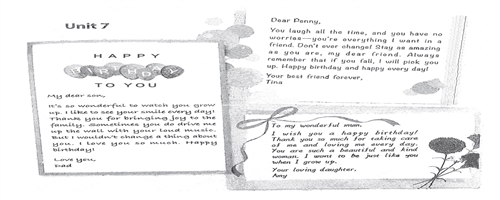Lao Zi(571 B. C.~471 B. C.), famous Chinese philosopher and founder of Taoism, was born at Ku Prefecture (today's Luyi County of Henan Province) in the later years of the Spring and Autumn Period. His real name was Li Er and his courtesy name was Dan.
老子(公元前571年~公元前471年),姓李,名耳,字聃,楚国苦县(今河南鹿邑县)人,生活时代约和孔子同时或略早,道家学派的创始人。
Lao Zi was an older contemporary of Confucius and once worked as an archivist in the imperial library of the Zhou Dynasty before he retired from public life. It is widely believed that he was the author of the Taoist scripture Lao Zi (also known as Tao Te Ching, or Dao De Jing, roughly translated as Book of the Way and Its Virtue). Slightly more than 5,000 characters, this book is considered as one of the most influential texts on Chinese philosophy and religion.
曾做过周朝守藏史,后退隐,作《老子》五千言,思想的核心是“道”。
The core of Lao Zi's thought is "Tao"(the Way ), by which he refered to the condition of the universe before the creation of the heaven and the earth. Therefore, it is from Tao that all the elements of the universe are derived. Reversal enables Tao to have a circular movement, that is, when the development of anything brings it to one extreme, a reversal to the other extreme takes place.
他把天地未生之前的浑沌状态称为“道”,道是天地之根,天下之母,万物的本源,道周而复始地运动着,其基本运动形式是“反者道之动”,即矛盾的对立面各向其相反的方向转化。
Using Tao as the point of departure of his philosophy, Lao Zi believed that soft and weak overcome hard and strong (“Of all things yielding and weak in the world, none is more so than water. But for attacking what is unyielding and strong, nothing is superior to it.”). He upheld the idea of stillness and tranquility (“Attain utmost vacuity, hold fast to quietude.”) and suggested that only through “cleansing and purifying the distracting thoughts" can one understand one's true self. For him, it was more important to “see the simplicity, to realize one's true nature, to cast off selfishness, and to temper desire".
以“道”为理论基础,在人生观上,老子贵无,尚柔,“天下莫柔于水,而攻坚强者莫之能胜”;主静,“致虚极,守静笃”;要对心灵“涤除玄鉴”,从而返自观照内心的本明;要“见素抱朴,少私寡欲”,保持一颗赤子之心。
Lao Zi attached importance to the withdrawal in oneself, especially through the cultivation and regulation of mentality with one's own efforts.
老子执著于个体生命的自我保全,特别是精神状态的自我调谐。
Politically, Lao Zi advocated ruling by non-action or inaction, on which he wrote that “I take no action and people are reformed. I enjoy peace and people become honest. I do nothing and people become rich. I have no desires and people return to the good and simple life.” And “If you try to change it (the universe), you will ruin it. If you try to hold it, you will lose it.” Lao Zi also took an anti-war stance: “Weapons are the tools of fear; a decent man will avoid them, except in the direst necessity.”
在政治观上,老子主张无为而治,“我无为而民自化,我好静而民自正,我无事而民自富,我无欲而民自朴”,“为者败之,知者失之。”反对战争,认为“兵者,不祥之器,不得已而用之”。
The idealistic state in his description is naturalistic, even primitive and in isolation: “Let your community be small, with only a few people.”
老子的理想社会是自然原始、封闭隔绝的‘小国寡民”社会。
Lao Zi believed that the force behind the motion of the universe is overwhelming: “What is higher is pulled down, and what is lower is raised up; what is taller is shortened, and what is thinner is broadened; Nature's motion decreases those who have more than they need and increases those who need more than they have.”
在天道观上,老子认为,天是有意志的,天意决定一切。天意向善,同情弱者,损有余而补不足,“高者抑之,下者举之”。
Lao Zi's pursuit of vacuity and action through non-action echoes the reality of his time, a period torn by ceaseless wars among states. His philosophy reflects the exploration of an intellectual for the ultimate solution of the social order and individual freedom.
总之,老子清静无为的思想是时代的产物,在列国纷争的春秋战国时期,是对现实的一种澄清与批判,他的哲学观反映了当时一部分知识分子对未来社会走向与治国方式的一种探索。





 。
。